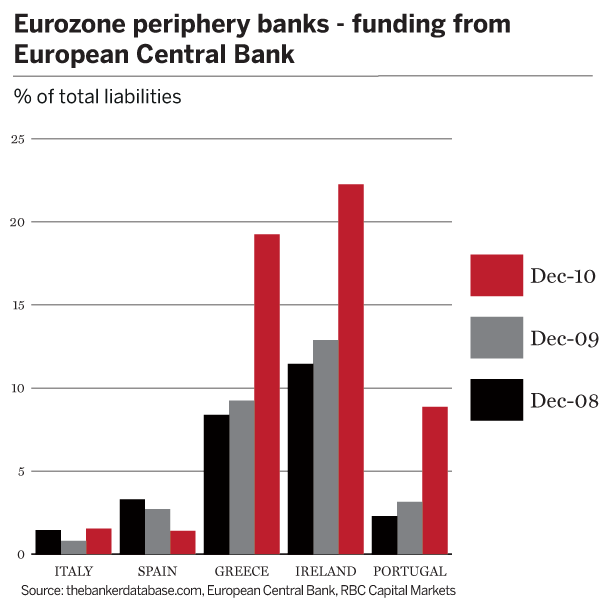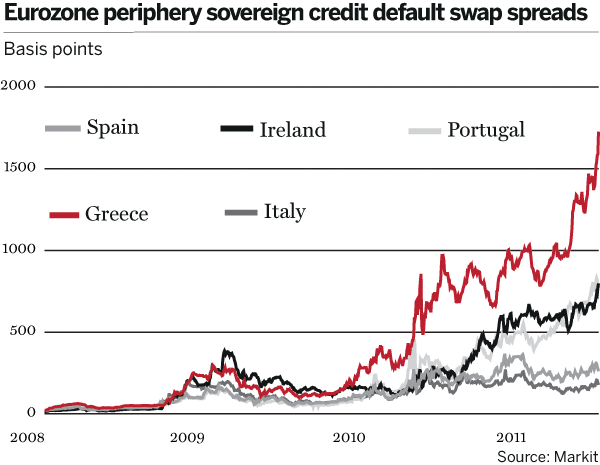Not all European periphery banks are addicted to the ECB
As the creation of a European Financial Stability Fund (EFSF) hits political obstacles, European Central Bank (ECB) funding remains crucial for banks in the troubled eurozone periphery.
Weaning these so-called addicted banks away from their dependence on central bank liquidity is an essential part of resolving the eurozone financial crisis. But our database shows that not all the banks in crisis-hit countries are addicts.
Italian and Spanish banks drew less than 2% of their financing from the ECB as at end-2010. Despite concerns about heavy losses on real estate exposure, Spanish reliance on the ECB actually declined in 2010 as a proportion of liabilities. This might suggest that the government’s programme of consolidation and recapitalisation in the caja (savings bank) sector is paying off.
Both countries have also enjoyed relatively resilient deposit bases, even for some of the worst-hit cajas. Italian households have very low levels of indebtedness compared to many other countries in Western Europe, providing local banks with a large retail deposit market. And Spanish banks have been able to distribute bond-format funding to their retail customer network, even when foreign institutional investors have been anxious about asset quality.
By contrast, the deteriorating funding conditions for Greece, Ireland and Portugal are clear, with ECB facilities as a proportion of bank liabilities doubling for all three countries in 2010. Ireland’s banks are the most dependent on ECB facilities, at around 23% of liabilities. Bank of Ireland – now the country’s largest by Tier 1 capital – has begun to re-access commercial funding via private placements. But the sector was highly leveraged before the crisis, leaving a heavy refinancing burden.
Sovereign credit default swap spreads for Greece soared in 2010 (see chart below), effectively freezing Greek banks out of the commercial funding markets. Yet they were still less reliant on ECB funding than Irish peers as at end-2010. This reflects more conservative funding strategies in Greece during the pre-crisis years. But even banks with the best-managed liquidity cannot live without fresh financing for months on end, and the ECB addiction will be hard to kick unless there is progress on the fiscal front.




